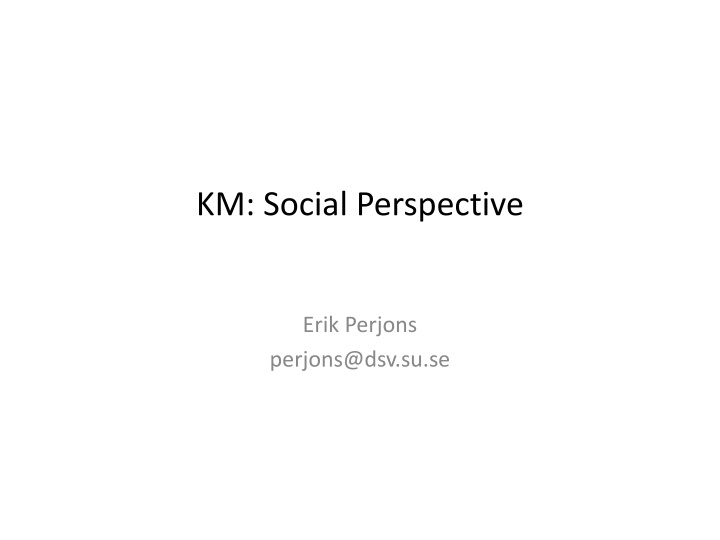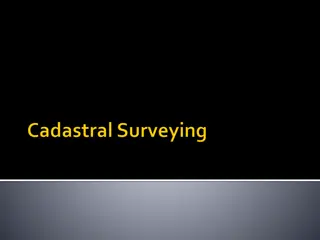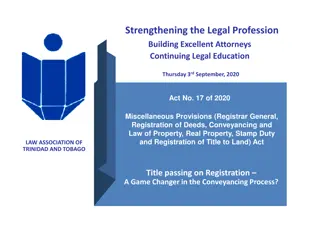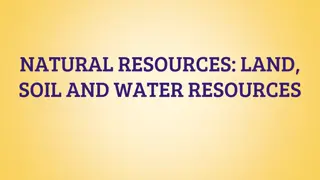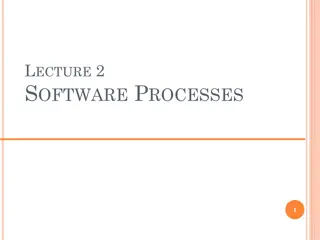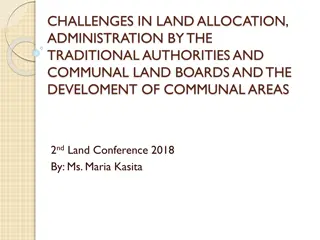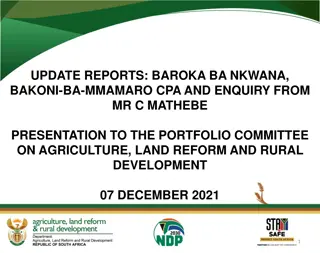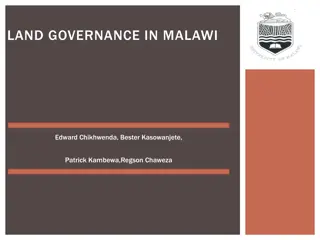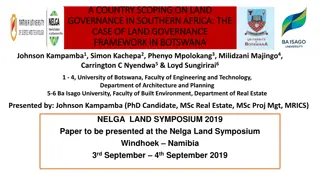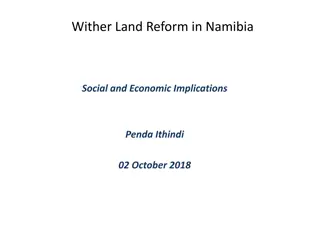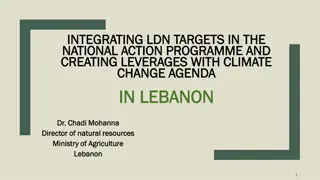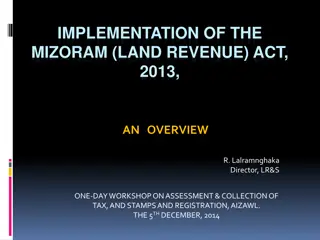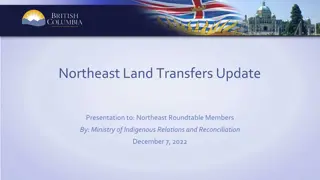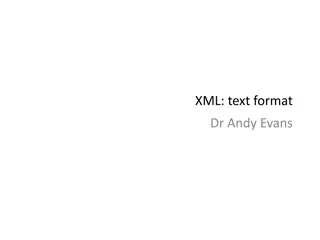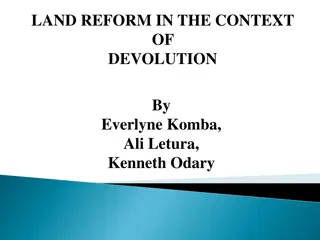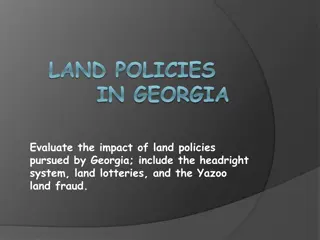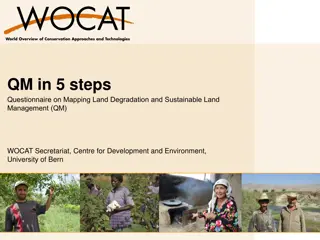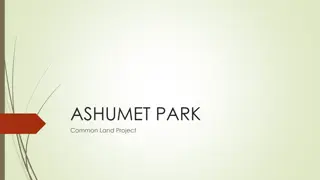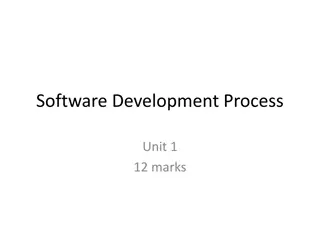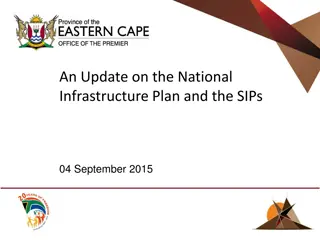Land SIPS Data Formats & Software Updates Overview
In this detailed document, explore the transitioning of LSIPS to NASA VIIRS datasets, data formats for L1 and L2 products, and procedures for software updates within the operational interface. Understand the requirements for different data formats, granule types, and metadata attributes. Dive into the processes involved in obtaining, updating, compiling, testing, and delivering code changes, ensuring seamless integration with LSIPS SSTG. Stay informed about the latest advancements and protocols for efficient data handling in scientific applications.
Uploaded on Apr 13, 2025 | 2 Views
Download Presentation

Please find below an Image/Link to download the presentation.
The content on the website is provided AS IS for your information and personal use only. It may not be sold, licensed, or shared on other websites without obtaining consent from the author.If you encounter any issues during the download, it is possible that the publisher has removed the file from their server.
You are allowed to download the files provided on this website for personal or commercial use, subject to the condition that they are used lawfully. All files are the property of their respective owners.
The content on the website is provided AS IS for your information and personal use only. It may not be sold, licensed, or shared on other websites without obtaining consent from the author.
E N D
Presentation Transcript
KM: Social Perspective Erik Perjons perjons@dsv.su.se
Kim&Mauborgne: Fair Process: Managing in the Knowledge Economy 1(2) Economist assume that people are focussing on outcome only. However, the power of fair processes is strong: if employees feel respected and feel trust for their management, they show committments and engagements The practice of a fair process means that each idea from employees should be considered and assessed before adopted or discared Fair process is not decision by consensus. It has nothing to do with fair outcome. It has do do with respecting ideas from employees
Kim&Mauborgne: Fair Process: Managing in the Knowledge Economy 2(2) Violating a fair process will be the most critical to performance. The employees will try to roll back decisions which are not based on fair processes, even if the outcome will benefit the employees Three principles of fair processes: Engagement. Involve individuals in decisions that effect them. Ask for ideas and ask them to assess other employees ideas. This create a feeling of respect among employees, and build up a collective wisdom Explanation. Explain the thinking behind a decision. Create trust for the management and enhance learning (feedback loop) Expectation need to be clearly expressed. Specify the standard/rules by which the employees will be judged and the penalties for failure.
Gupta&Govindarajan: Knowledge Management s Social Dimension: Lesson from Nucor Steel 1(4) How to build a knowledge sharing environment? Build a social ecology for effective knowledge management. A social ecology free from pathologies. That is, a whole ecosystem of complementary and mutually reinforcing organisational mechanisms What is effective knowledge management? Continously create and acquire new knowledge, and effectively share and mobilise that knowledge throughout the organisation
Gupta&Govindarajan: Knowledge Management s Social Dimension: Lesson from Nucor Steel 2(4) Social ecology: a social system in which human operate. It formes the humans expectations, way of acting without approval, way of interacting within and with actors outside the organisation, and defines which individuals fits into the organisation The concept of social ecology states that the social system shall not be viewed as a temporary collection of disparate elements, but as a whole, in which people interacts, and where mechanisms are complementary and mutually reinforcing What determines the social ecology? Things such as culture, structure, IS/IT, reward systems, process, leadership, people
Gupta&Govindarajan: Knowledge Management s Social Dimension: Lesson from Nucor Steel 3(4) Nucor steel succeeded to create incentives for knowledge management, that is, a social ecology: Identify opportunities to share knowledge: visualised performance data Encourage individuals to share knowledge: group bonus system Building efficient and effective transmission channels: IT for explicit knowledge transfer and face-to-face for tacit. Intraplant knowledge transfers: community of practice, ground rules for critisims. Interplants knowledge transfers: engineers were changing teams Convincing individuals to accept and use the knowledge they receive More: policy of no layoffs
Gupta&Govindarajan: Knowledge Management s Social Dimension: Lesson from Nucor Steel 4(4) Maximising knowledge creation and acquisition Set stretch goals. Need to be combined with incentives Cultivate empowerment and provide slack resourses Equip every unit with a well defined sandbox for play Cultivate market for ideas within the company Maximising knowledge sharing Ban knowledge hoarding and turn knowledge givers into heroes Rely on group based incentives Invest in codifying tacit knowledge Match transmission mechanism to type of knowledge
